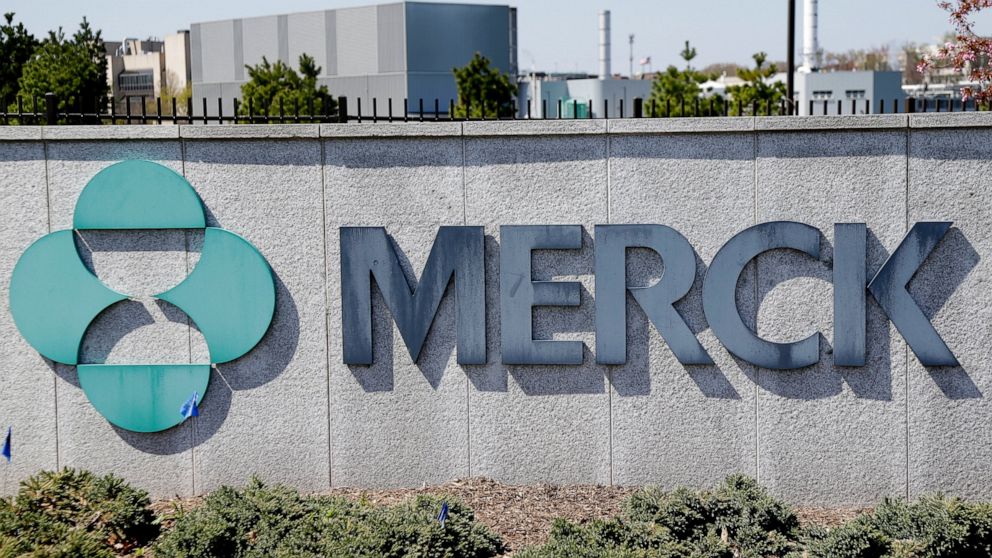Merck loses $2.1B in Q4; longtime CEO Frazier to retire
Merck is posting a big fourth-quarter loss, due to a hefty charge and much higher spending on research, production and overhead
Kenilworth, NJ — Merck posted a big fourth-quarter loss due to a hefty charge and higher spending on research, production and overhead. The company also announced Ken Frazier, its longtime chief executive, will retire on July 1.
Frazier, Merck’s CEO for the past decade, will be replaced by Rob Davis, the chief financial officer, the company said Thursday. Frazier will become executive chairman of the board during a transition period.
Frazier, who joined Merck in 1992 as general counsel to one of Merck’s pharmaceutical businesses and worked his way up to the top job, is one of only a few minorities to lead an S&P 500 company. He clashed with then-President Donald Trump over his refusal to condemn the white supremacists who marched in Charlottesville, Virginia, in August 2017.
Frazier quit the president’s manufacturing council, and was attacked repeatedly by Trump on Twitter.
Other executives followed and the council was quickly disbanded.
Merck, one of the world’s top vaccine makers, recently announced that it was scrapping its two COVID-19 vaccine candidates, but is continuing to develop a pair of potential treatments for the new coronavirus.
The Kenilworth, New Jersey, company lost $2.09 billion, or $0.83 per share. Adjusted income came to $3.4 billion, or $1.32 per share, well short of the $1.38 Wall Street was looking for, according to a survey by FactSet.
A year earlier, Merck posted net income of 2.36 billion, or $0.92 per share.
The fourth-quarter results included two sizeable charges: an asset impairment charge of $1.6 billion for antibiotic Zerbaxa, which instituted a recall in December and has temporarily suspended sales, and a $2.7 billion charge for acquiring cancer drug developer VelosBio.
The VelosBio deal was aimed at expanding Merck’s cancer drug franchise, which is focused on immunotherapy treatment Keytruda, now approved for dozens of cancer types and patient groups. One of the world’s most lucrative drugs, Keytruda brought in a whopping $14.4 billion in 2020 sales.
Keytruda sales came in just under $4 billion in the quarter, up 28% from a year earlier. Gardasil, a vaccine to prevent the cancer-causing human papilloma virus, had sales of $998 million, up 44%, while Januvia and Janumet diabetes pills had combined sales of $1.3 billion.
Overall revenue was $12.51 billion, up 5% from a year earlier. That was also shy of the $12.67 billion projected by analysts.
Sales of veterinary medicines came to $1.17 billion, up 4%.
Shares were essentially flat before the opening bell Thursday around $77.40. When Frazier took over the company as CEO, its stock was worth about $20.
Merck & Co. said it expects earnings per share for 2021 to range between $5.52 and $5.72. It expects revenue for the year of $51.8 billion to $53.8 billion.
However, the company said those estimates will change if its long-planned spinoff of its Organon subsidiary, which sells women’s health products and biosimilar drugs, or near-copies of expensive biologic drugs, occurs in the second quarter as planned. Merck also said that it expects the pandemic’s impact will cut 2021 revenue by 2%.
———
Follow Linda A. Johnson at https://twitter.com/LindaJ—onPharma
![]()


